NOPE (2022)
Two Californian siblings try to capture footage of an apparent UFO visiting their desert ranch.
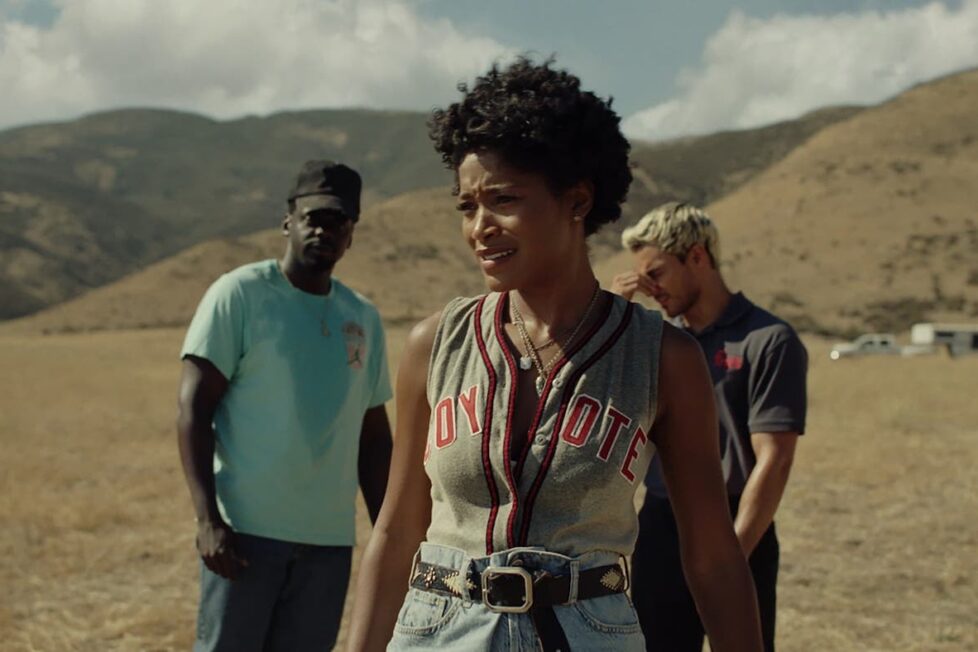
Two Californian siblings try to capture footage of an apparent UFO visiting their desert ranch.


Jordan Peele’s third film has more in common with Us (2019) than with Get Out (2017). Where his debut was a razor-sharp, grimly hilarious parable of the subjugation of black people in a supposedly equal United States, Us was a more ambitious and multi-layered film; its revelations of another world parallel to our own often seeming on the verge of profundity although eventually somewhat hamstrung by a contrived explanation.
With Nope, Peele moves completely away from racial politics (the two lead characters here are black, but it’s almost incidental) and gives fuller rein to the fantastical inclinations of Us. But it’s a mixed blessing. If you occasionally felt the narrative of Us was built around an arresting image or moment, here that’s almost continually the case.
Nope resists easy description, and it won’t help much to suggest it’s a mash-up of Arrival (2016), Signs (2002), Mars Attacks! (1996) and Once Upon a Time… in Hollywood (2019), with touches of Breaking Bad, Close Encounters of the Third Kind (1977), 2001: A Space Odyssey (1968), Jaws (1975) and more. The sheer oddness of the film gives it frequent power, and Peele excels at atmosphere and striking imagery.
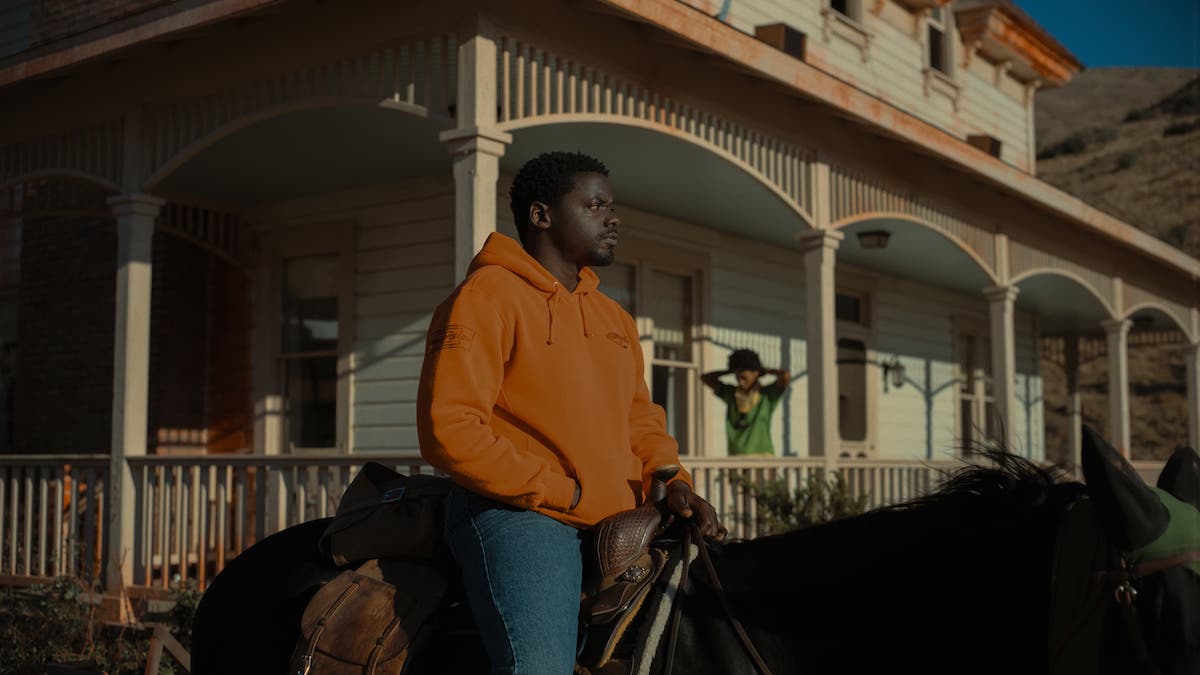
But that’s not quite enough to compensate for an unengaging narrative and characters. Sure, it’s intriguing enough to find out what happens next, but you don’t care too deeply, and nor is there much sense of plot elements connecting organically. Even more so than in Us, everything seems forced.
Nope begins in the 1990s with outtakes from a fictional TV series called Gordy’s Home, featuring the antics of a jolly chimpanzee who lives with a human family. On this occasion, however, the chimp isn’t so cute, as he turns on the cast and apparently kills or injures many of them on set.
Gordy later returns in another flashback, one of the most effective scenes in the Nope, where the blood-soaked monkey approaches a young boy (Jacob Kim) cowering under a table and offers him a fist bump. In the background ‘APPLAUSE’ signs flash inanely for a studio audience long fled; the camera lingers on a discarded shoe that’s somehow now balanced on its heel, a clear statement by Peele that the unlikely can happen.
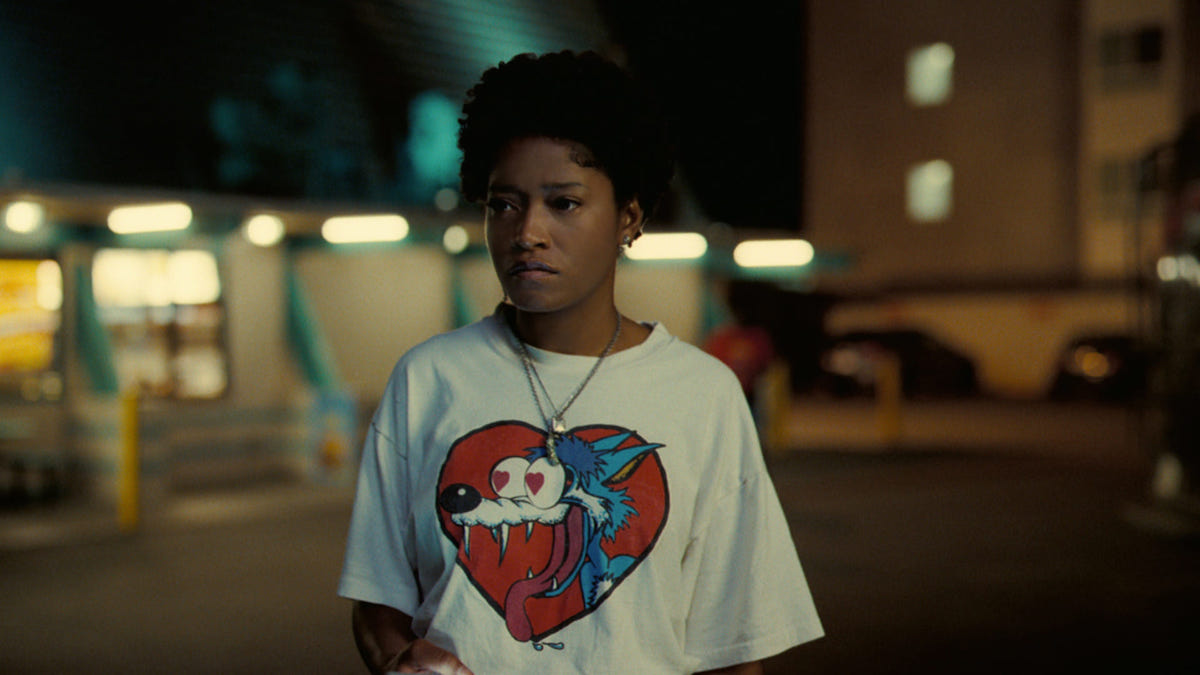
Most of Nope, however, takes place in the present day. OJ (Daniel Kaluuya) and his sister Emerald (Keke Palmer) have inherited a ranch somewhere near Los Angeles from their father (Keith David) after his death in a freakish incident, killed by a coin falling from the sky.
They make a living supplying horses for movie shoots, but they’re not very successful at it. Emerald would rather be making her own movies, while you get the impression OJ would rather train horses and avoid people, so they’ve started selling some of their animals to Ricky (Steven Yeun), the owner of a nearby Wild West theme park called Jupiter’s Claim. Ricky’s also the grown-up boy spared by the marauding chimp in those Gordy’s Home flashbacks.
Ricky comes to have greater significance in the story, but Nope focuses on OJ and Emerald in introducing the core premise. Their electricity starts going on and off, horses start behaving oddly, and there’s a strange shape in the sky. “What’s a bad miracle?” OJ asks Emerald—a brilliantly ominous line exploited by the trailers that suggests a darker story than we get.
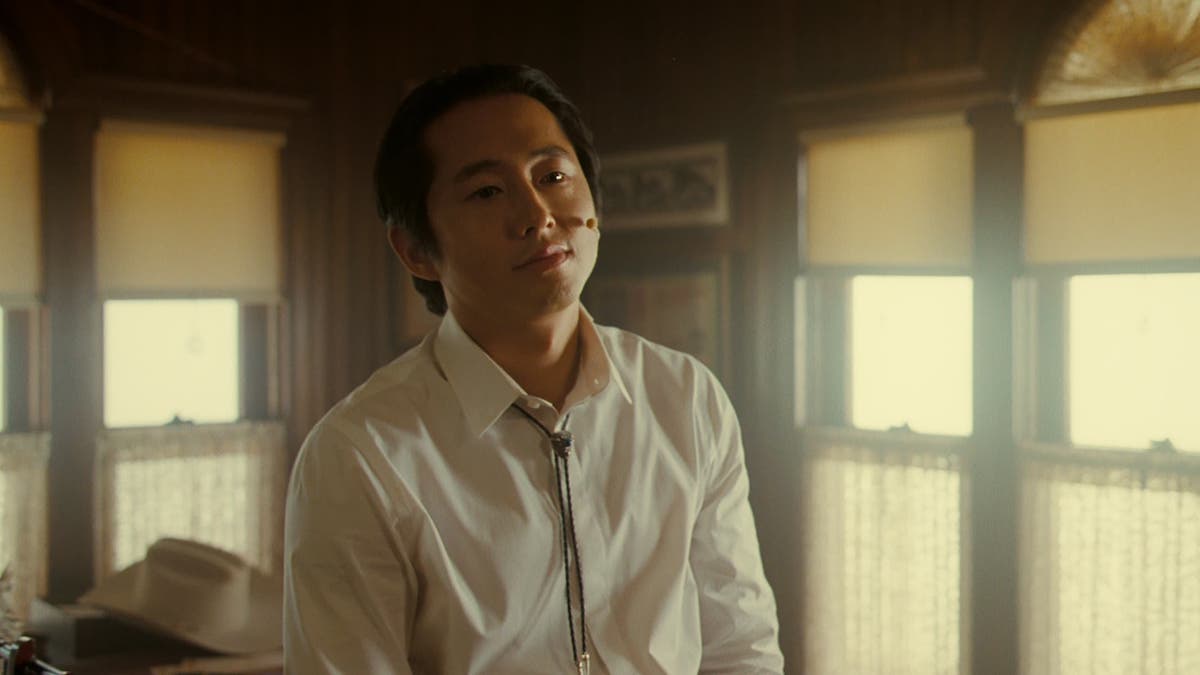
Deciding they’re being visited by UFOs, the siblings figure that obtaining footage of aliens might restore their faltering finances, and so they recruit Angel (Brandon Perea) to assist them; a surveillance whiz and alien nut who works at a local electronics store. Later, filmmaker Antlers (Michael Wincott) also joins them, bringing with him much lower-tech mechanical equipment which will be immune to the aliens’ electrical interference. And so the scene is set for Nope to eventually reveal what OJ and Emerald have been watching in the skies.
Weirdness pervades, sometimes relevant to the storyline and sometimes not obviously so: a pig on a roof, giant inflatable tube men surrounding the ranch, and what seems to be bunting in the sky. Peele’s undeniable talent for crafting an unsettling atmosphere is at its best in a long rainstorm sequence (can the aliens affect the weather?) where OJ’s stuck in his truck while Emerald and Angel are in the ranch house. At many other times, though, touches of the inexplicable are brief, perhaps not contributing anything to the narrative directly (and perhaps it’s unwise to think about them too hard individually) but serving to maintain unease.
Many details are effective, too. For example, the stylised flying-saucer-and-beam pattern on Ricky’s cowboy jacket, or the resemblance of an alien maw to the distant rectangle visions of Kaluuya in Get Out’s “sunken place”—though some are contrived: why would the characters refer to each other by codenames based on Monopoly pieces when they could perfectly easily use their own names? It’s doubtful E.T cares much either way.
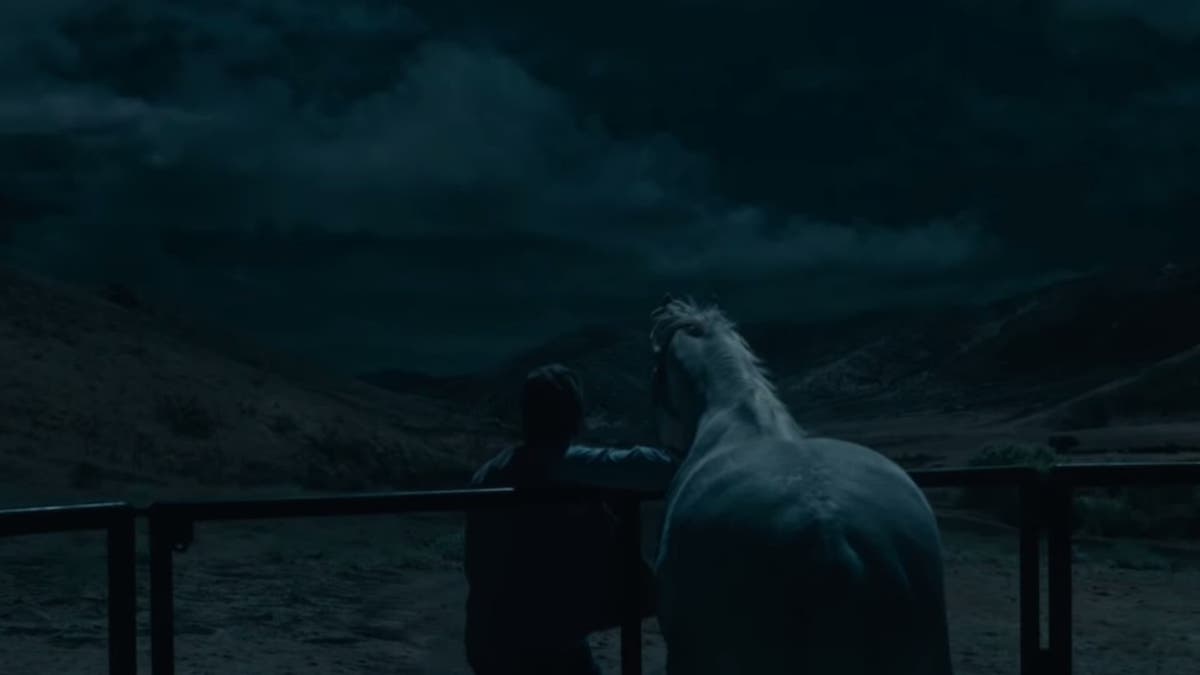
Palmer’s Emerald is the live-wire of the cast, almost incapable of not setting every line and scene alight. She contrasts with the more stolid, almost slow, Kaluuya as OJ. They’re examples of different kinds of determination. Yeun also excels as Ricky, never allowing us to be completely sure whether the character’s a traumatised obsessive or just out to make a quick buck. He could warrant a film of his own.
Perea is amusing as Angel, and Wincott makes for a suitably gruff Antlers—although, even more than the others, it’s difficult to believe in him as a real human being. All the characters have, at least at times, the distinct feeling of being placed there by a writer to fulfil a particular function.
Michael Abels (who composed for both Get Out and Us) contributes a fine, mostly low-pitched, sometimes exciting music score which can be difficult to separate from diegetic sound (no doubt intentionally) and on occasions incorporates appropriate Wild West touches.
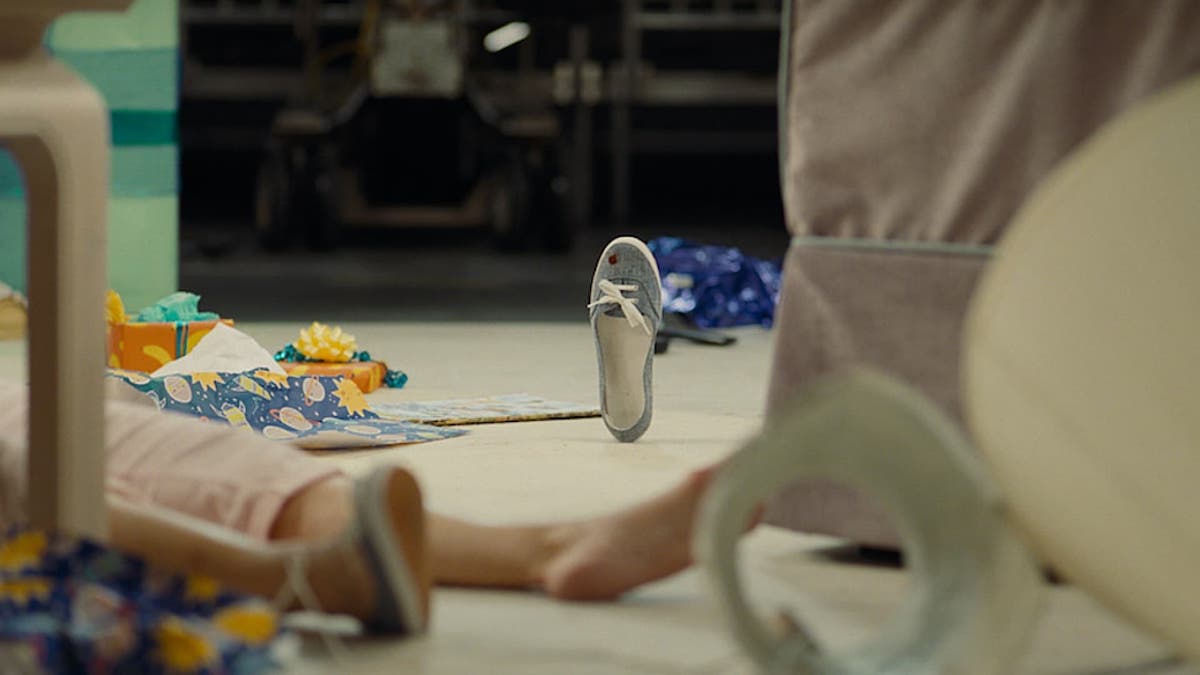
Nope is jam-packed with ideas. It’s concerned with animals, perhaps suggesting aliens might see us that way, or their worldview might be as impenetrable to us as an animal’s. It’s concerned with seeing, surveillance, cameras, and film; the opening Biblical quotation threatens to “make you a spectacle.”
It’s also pleased with its own puns. OJ says he is “going to get Lucky”, referring to a horse, and although Peele has claimed the title simply refers to some audience’s lack of enthusiasm for horror, the word is played with during the film and seems to represent a contraction of “no hope”. Nope is also based on a huge scatological joke; “I will cast abominable filth upon you”, warns that passage from the Old Testament Book of Nahum at the beginning, and when a character mentions a “bunch of random shit” falling from the sky he is speaking more literally than the audience then realises.
But the abundant, almost uncontrolled invention on display isn’t enough to conceal the reality that Nope is dangerously shallow in narrative and character development. There’s plenty that’s diverting here, occasionally even breathtaking, and it’s only during rare moments it drags… but, ultimately, it starts to feel like a surfeit of novelty which never offers any real reason to care about its people or what it might be saying. So it ends up raising suspicions it might not have anything coherent to say.
USA | 2022 | 130 MINUTES | 2.39:1 • 1.43:1 (IMAX) | COLOUR | ENGLISH

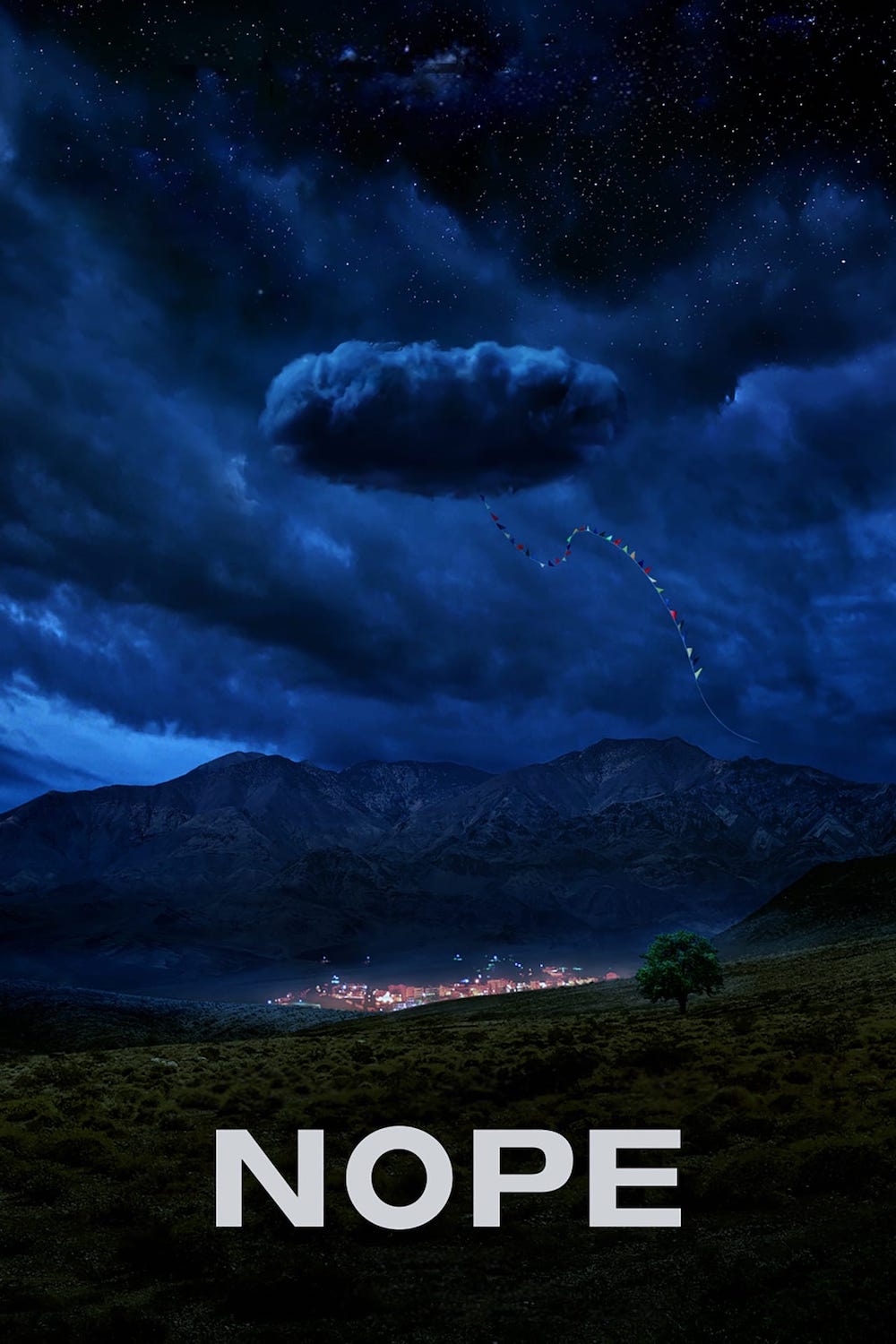
writer & director: Jordan Peele.
starring: Daniel Kaluuya, Keke Palmer, Brandon Perea, Michael Wincott & Steven Yeun.
